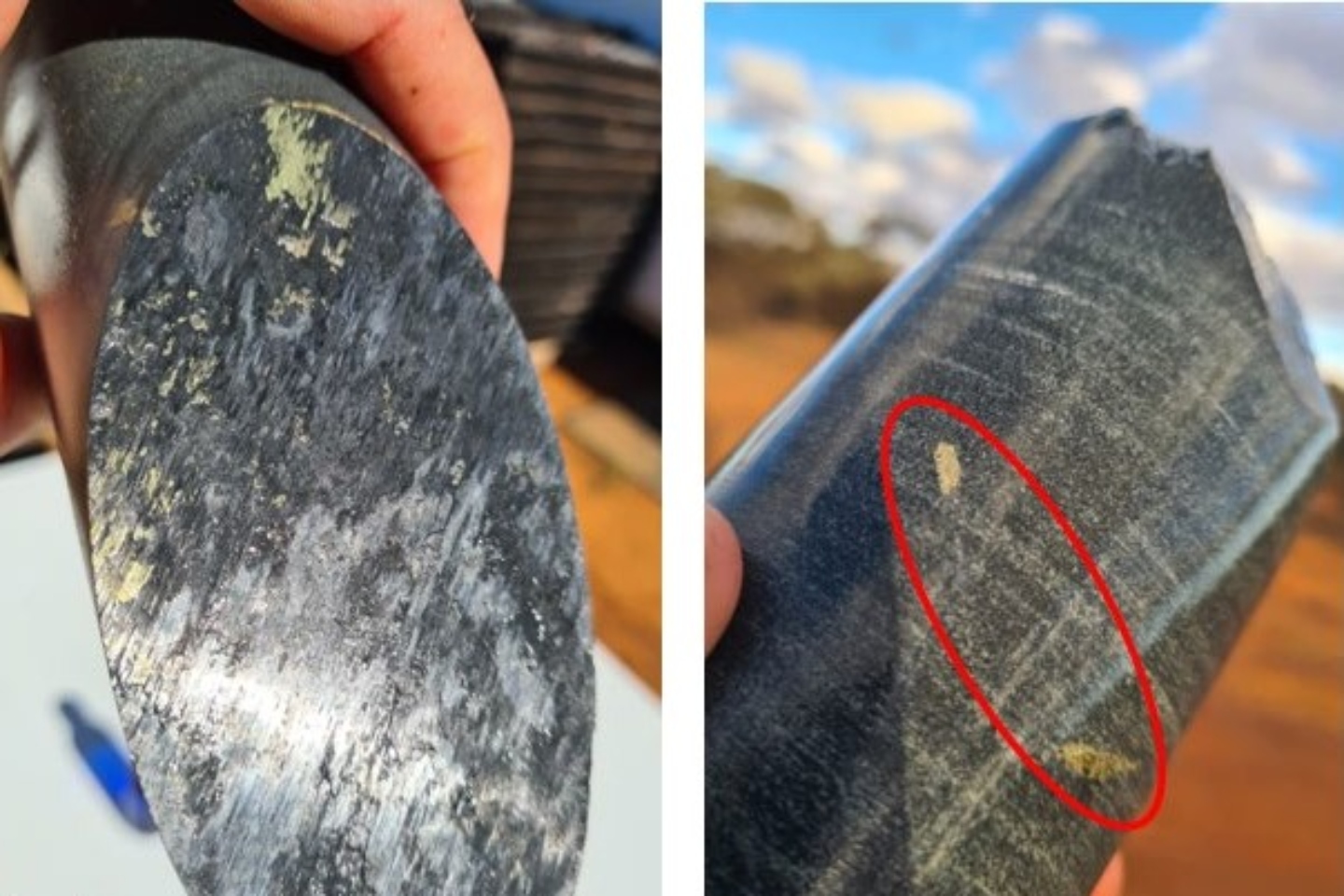Everest Metals’ stock jumped 50 per cent after it revealed that three deep diamond holes drilled to follow up newly-imaged targets at its Revere gold project suggested 8.5km of continuous mineralisation up to 5.7 per cent copper and 4.2 per cent zinc. The company says initial XRF results and logging indicate a mineralised system similar to Sandfire Resources’ world-class DeGrussa copper–gold mine.


Everest Metals’ stock jumped 50 per cent after it revealed that three deep diamond holes drilled to follow up newly-imaged targets at its Revere gold project suggested 8.5km of continuous mineralisation up to 5.7 per cent copper and 4.2 per cent zinc.
After the company’s share price closed at 25 cents on Tuesday, it reached a year-high today of 37.5c during intraday trading, with more than 9.5 million shares changing hands.
Management says initial spot X-ray fluorescence (XRF) results and logging suggests a copper–gold system similar to that seen at Sandfire Resources’ world-class DeGrussa mine, which is 55km away and along strike. DeGrussa produced successfully for 10 years and is widely regarded as one of Australia’s highest-grade copper mines, with 10.67 million tonnes at 5.6 percent copper. Clearly, Everest’s new drilling results did not disappoint the market and the latest assessment shows similar geology to DeGrussa at depth.
The first hole in the program, drilled to 400.1m, encountered five zones of interest and was tested by XRF readings from between 198m and 390m. The best of the readings came back with 0.5 per cent copper and 709 parts per million zinc at 334.2m.
The company says the hole intersected mafic breccia and sulphide–rich interbedded green-grey and graphitic black shales acting as the source of the geophysical anomaly.
The second hole was drilled to 336.1m and returned the best XRF results for the program. A 30m-thick section of dolomite returned a spot XRF hit of 5.7 per cent copper and 4.2 per cent zinc at 314.9m.
Another two sample points higher in the second hole, at about 280m, gave XRF values of 1.7 per cent copper and 158ppm zinc and 1.9 per cent copper and 250ppm zinc.
The third and final hole in the program was drilled to 302.2m and was sampled by only one XRF point, returning a result of 0.02 per cent copper and 440ppm zinc at 167m.
Everest Metals chief operating officer Simon Philips said: “To drill into such a large mineralised system on our first pass drilling is significant and highlights the potential of the target area. The first three diamond drill holes were designed to test electromagnetic conductors identified as having the potential for Volcanic Hosted Massive Sulphides at depth. The similarities in geological sequences when compared to the Sandfire DeGrussa VHMS deposit is geologically very significant. We look forward to assays and downhole EM surveys to guide us on further testing the system.”
The company’s geological interpretation of the core suggests it was cut from the same pay–zone as not only DeGrussa, but also Sandfire’s 1.05-million-tonne Monty mine, which is also along strike and boasts huge grades of 9.4 per cent copper.
Everest says its core also shares the same geology and strike as the Green Dragon deposit with 8.2 million tonnes at 1.8 per cent copper and the historic Thaduna mine, which had produced 30,528 tonnes at 8.18 per cent copper by 1971.
Management will now wait for assays from the deep holes at Revere to return in early September for confirmation of the initial XRF data. Downhole electromagnetic survey data is due back in August and will assess any new leads between the drillholes at depth.
The recent drilling by Everest was designed to follow up on significant electromagnetic anomalies picked up through data reprocessing and the company says the strongly-conducting nature of the anomalies suggests they represent massive sulphide or highly-graphitic bodies at a large scale.
In support of that interpretation, historic drilling results in the area in the past decade highlight the potential for large-scale volcanic-hosted massive sulphide copper–gold mineralisation, deep within fresh rock below the base of complete oxidisation.
With Everest’s latest holes suggesting the same, in addition to big copper grades produced from similar massive sulphides along strike, the company is ensuring the deep leads at Revere get the attention they deserve. That will include plans to soon drill two more 300m-deep holes.
Is your ASX-listed company doing something interesting? Contact: matt.birney@businessnews.com.au












